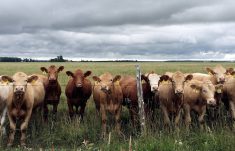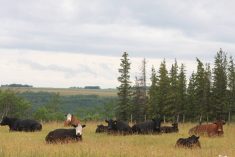Anyone who feels farmers are a spent political force in Canada need only consult the results of the recent Conservative Party of Canada federal leadership race.
Farmers may make up less than two per cent of the national population, but that Saturday night, as delegates voted for a new leader, a relative handful of farmers clearly punched above their political weight.
Supply-managed producers from Quebec and Ontario had organized to get out the vote against Maxime Bernier, who came into the convention a favoured front-runner.
Read Also

Bug farming has a scaling problem
Why hasn’t bug farming scaled despite huge investment and subsidies? A look at the technical, cost and market realities behind its struggle.
The issue that galvanized these farmers into action was Bernier’s blunt repudiation of the supply-managed commodities as unfair to Canadians.
Organizing through word of mouth and social media, they quickly pulled together a good old-fashioned political ground game which included letters to the editor, attending leadership debates, lobbying other party members and taking out party memberships to vote.
It would seem that it worked in spades; Bernier even lost his own riding in the Quebec agricultural heartland of Beauce to upstart Saskatchewan MP Andrew Scheer by the end of the night. Scheer captured 51.1 per cent of the vote from those representatives, compared to Bernier’s 48.9 per cent, according to CBC news.
By their actions, these farmers have influenced the political fate of the nation for years to come.
The Conservatives will head into the 2019 election not with a bilingual Quecbecois at the head of the party, but with a rock-ribbed social conservative from Saskatchewan. He is bilingual, but is unlikely to make major inroads into Quebec, political analysts say.
Scheer is, by many estimations, also a compromise ‘anyone but’ candidate who brings with him some electoral baggage. Most notably he’s seen as a continuation of the legacy of Stephen Harper, something he’s never denied. What remains to be seen is if voters have any appetite to return to that camp after just four years. His social conservatism, pundits say, won’t play well in urban areas, which is where nearly 80 per cent of Canada’s population reside.
At least some are already conceding the 2019 election to Trudeau, and fretting future elections might also turn out to be more of the same.
Regardless of the long-term implications of how this will play out nationally, what’s immediately interesting is how supply-managed farmers managed to make their voice heard loudly and clearly in the political process.
At least for now, supply management is once again the third rail of Canadian politics, one that no candidate wants to step on.
It was clearly an effective tactic — but over time, will it prove to have been an effective strategy? There are a few inherent dangers.
The first and most important is the risk of backlash. Will they be seen as having derailed the leadership contest as simply another special interest?
It would seem some are already seeing it that way. Financial Post columnist and comment editor Terence Corcoran, a noted supply management critic, was particularly pointed in his words:
“Bernier would have won the leadership were it not for vote-rigging infiltrators from the farmers’ unions and associated backers of supply management.
“One source says that as many as 3,000 points went to Scheer, mostly in Quebec and Ontario, as a result of an organized campaign in which farmers temporarily joined the Conservative Party and then cast votes against Bernier.
“Bernier didn’t lose the leadership vote; it was stolen from him by a concerted campaign organized by members of Union des producteurs agricoles (UPA) and farmers in Ontario.”
Farmers indisputably had the right to participate in the campaign as they did, but playing the game may also make them ‘fair game’ for political criticism and action.
Perhaps the largest danger may come from the vanquished Bernier himself. He arrived at the convention with a comfortable, if not commanding, lead. He’s surely smarting from the defeat and, human nature being what it is, some resentment may creep in.
While supply management supporters have long painted him as hostile to their interests, it’s important to note he never called for farmers to be disadvantaged by policy changes and advocated for a planned and funded withdrawal from the system.
These farmers would do well to consider other Canadian political careers that were thought to be on the ash heap after leadership convention losses. They include names such as Brian Mulroney and Jean Chrétien, two of the longest-serving prime ministers in living memory.
Bernier could well return triumphant in a few years, and by then, his attitude towards supply management may have hardened.
It’s unexpected to see farmers play such a pivotal role in national politics again. Hopefully they won’t come to regret their actions.















